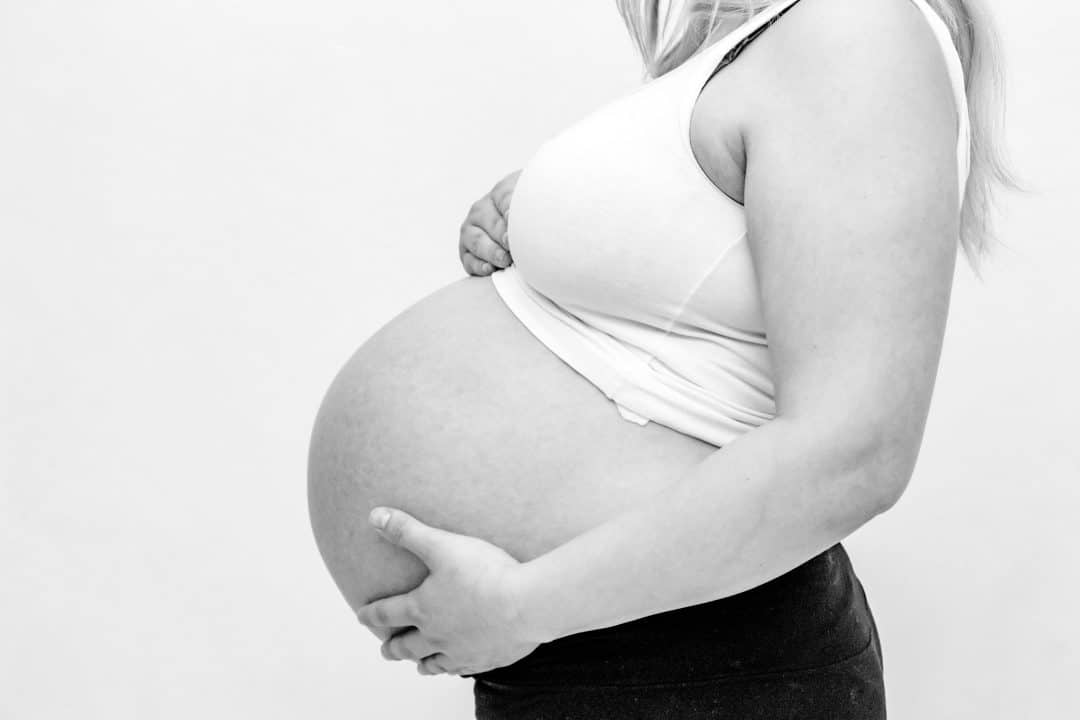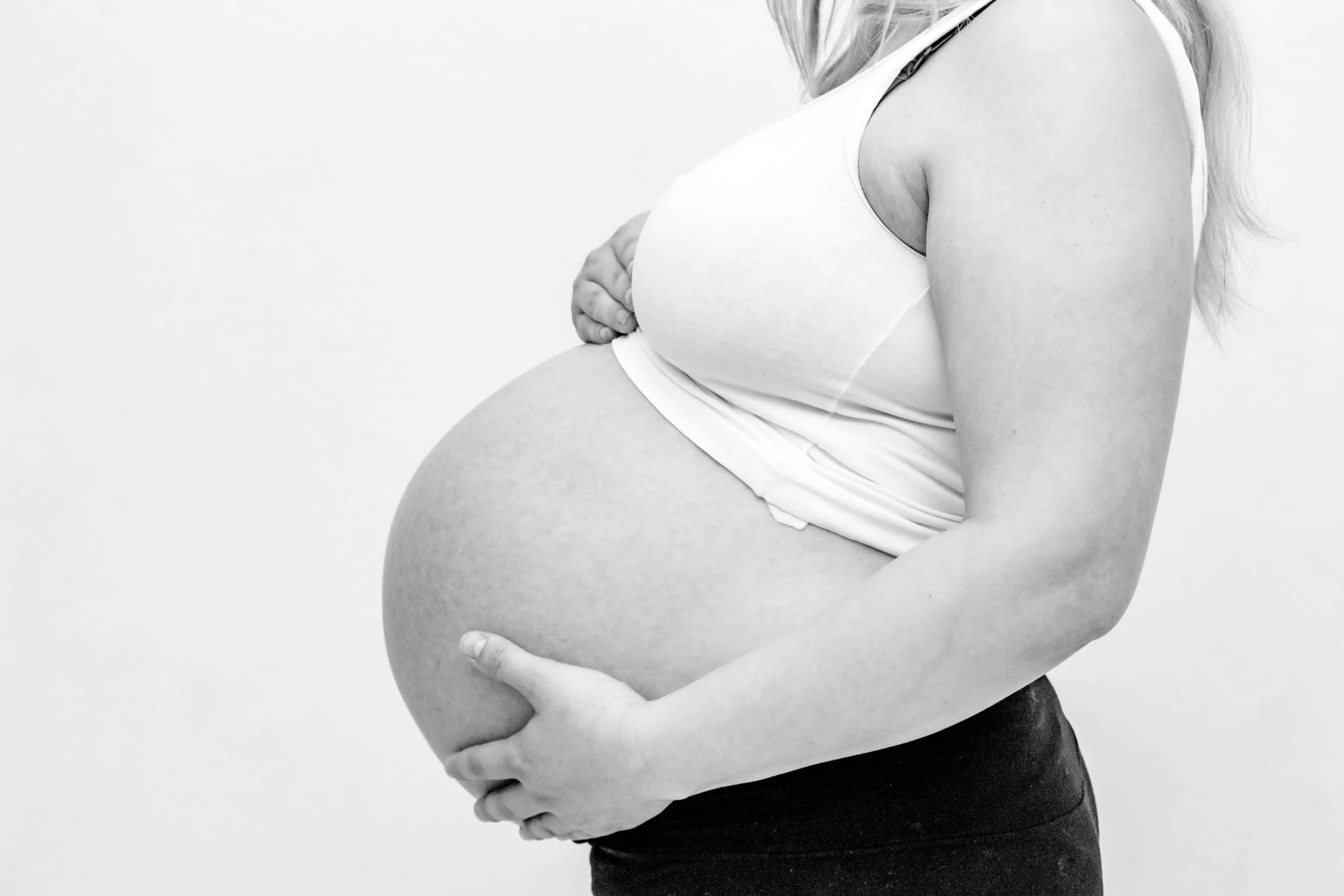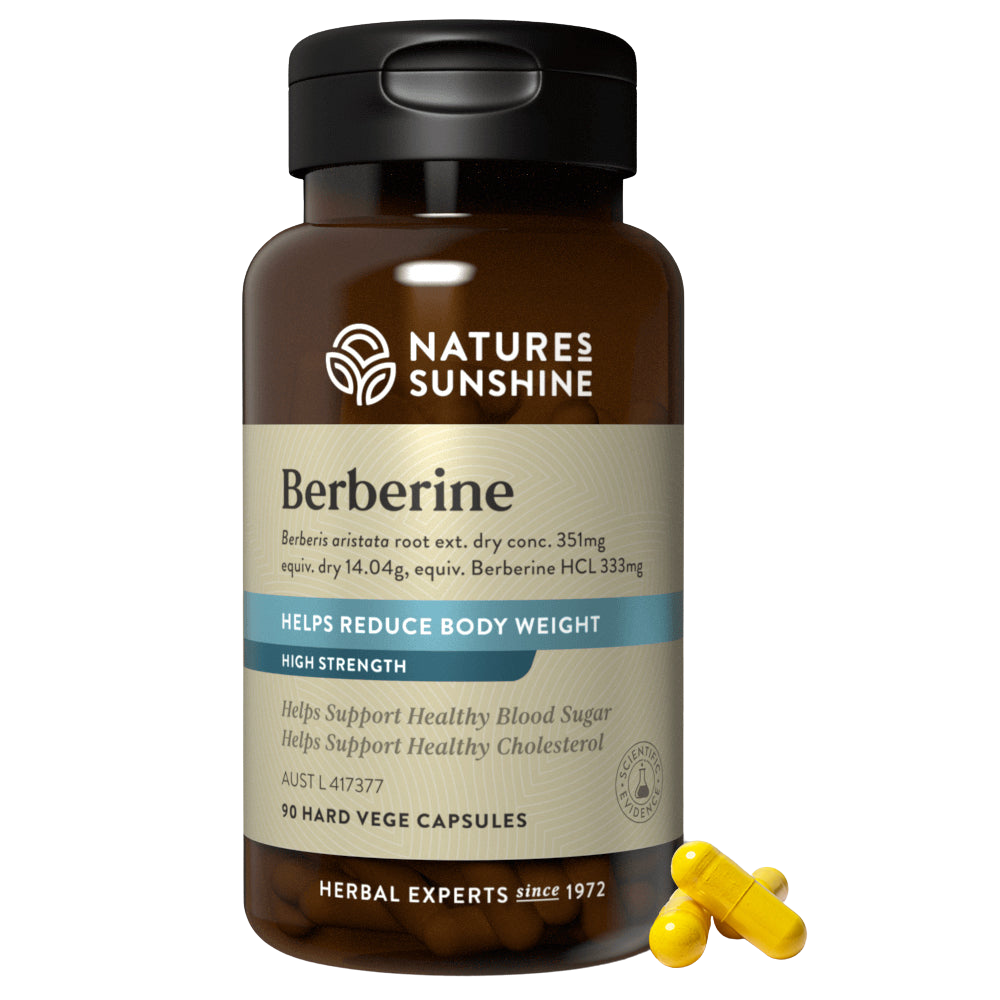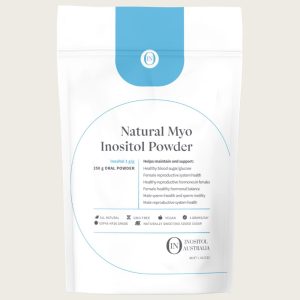
The decision to have children is one of the biggest decisions you’ll make in a lifetime. And while it can be exciting to decide that yes, you will move forward with the plan, it can also carry a number of unexpected challenges.
The challenges are particularly real for women that are insulin resistant. The good news is that challenging doesn’t mean impossible!
If you’ve been wondering how to get pregnant with insulin resistance, you’ve come to the right place. This article will explore insulin resistance and its effect on fertility and pregnancy while offering some tips on how to maximize the likelihood of success.
What Is Insulin Resistance?
Simply put, being insulin resistant means that your body does not properly respond to the insulin produced by the pancreas.
Carbohydrates are broken down by the body and turned into glucose in the blood. Insulin is what carries the glucose to the liver and muscles to be used as an energy source. This provides the body with necessary ‘fuel’ and helps to manage blood glucose.
For people with insulin resistance, the liver and the muscles do not properly respond to the insulin, forcing the pancreas to produce higher amounts of insulin to manage glucose levels.
Insulin resistance does not mean that you have type 2 diabetes but it does put you at greater risk for developing it in the future.
Insulin resistance is more common in individuals that:
- Have a family history of diabetes
- Are overweight
- Are inactive
- Have polycystic ovarian syndrome (PCOS)
- Are from certain ethnic groups like Indigenous Australians and Torres Strait Islanders
We will cover this in more detail below, but, insulin resistance can be effectively managed through lifestyle changes. Weight loss, increased exercise, a dietary shift, and supplementation with Myo-inositol can be quite effective.
Of course, if you have, or suspect you have insulin resistance, it is important to get medical advice before making any lifestyle changes. Together, you and your doctor can find the best path forward.
Can I Have Children if I Am Insulin Resistant?
The good news for women with insulin resistance is that yes, you can have children! The reality, however, is that insulin resistance makes it a little more difficult.
But, with the right information and the right planning, you can start or grow your family!
Insulin Resistance and Fertility
Insulin resistance can wreak havoc on the female reproductive system.
While PCOS is one of the most common causes of insulin resistance infertility in women, there are other conditions (like diabetes and obesity) that can cause insulin resistance.
Insulin is a hormone and as such, it can impact other hormonally driven bodily functions. Excessive amounts of insulin can lead to an increase in testosterone production over estrogen production. This, of course, throws off the balance of sex hormones leading women with insulin resistance to experience irregular ovulation or fail to ovulate at all. These women often experience irregular periods.
Scientific studies have shown that insulin resistance can delay the maturation of eggs, which can, in turn, in pact the growth and development of the fetus.
Fortunately, 60% of women with PCOS will be able to conceive naturally, even though it may take more time and effort.
How Do I Become Pregnant With Insulin Resistance?
Preconception planning is the key to pregnancy with insulin resistance. While you may experience unplanned or unexpected pregnancy, the more work you can do before conception, the better situated you will be for a healthy pregnancy.
There are many financial responsibilities, time commitments, and childcare needs that should be considered, we are going to focus specifically on maternal health-related planning for this article.
Here are some steps you can take to increase your chances of getting pregnant with insulin resistance:
Move Your Body
Getting some exercise is an excellent way to manage insulin resistance and increase your chances of falling pregnant.
Regular exercise can help reduce insulin sensitivity by helping your muscles more efficiently use blood glucose, reducing the amount of insulin required to strike the right balance.
Here are some exercises that can help to manage insulin resistance and improve fertility in the process:
- Aerobic exercises: These types of exercises are the ones that elevate the heart rate. The goal is to get the heart pumping and the blood flowing. High-intensity interval training (HIIT), cycling, running, swimming, and even walking, can do the trick.
Aim for 2-3 workouts a week, for 15-30 mins at a time.
- Strength training: Weight and resistance training can improve insulin resistance. A study published in 2018 in The American Journal of Physiology suggested that resistance training can increase the effectiveness of APPL1, a protein that regulates glucose absorption and can improve the body’s use of insulin.
These exercises will work out various muscle groups, building them up and improving their efficiency. Using weight machines, free weights, resistance bands, or activities in the water, like aquafit.
Aim to work your entire body 2-3 times a week. Avoid working the same part of the body two workouts in a row. Start slowly and do each exercise for at least 10-15 reps. Once you get used to that, you can increase your activity to 3 sets of 10-15 reps during each workout.
If you do not know where to start, consider consulting a personal trainer and working out a program that best meets your unique situation and needs.
- Stretching and coordination exercises: These exercises can improve balance, agility, and flexibility. They can also be used to reduce chronic stress levels, which have been linked to insulin resistance.
Yoga, Tai Chi, stretching, playing sports, surfing, and paddleboarding can engage your muscles, increase agility, and keep you feeling calm and connected to your movements.
Take Prenatal Supplements
There are many vitamins and minerals you should be taking to ensure the healthy growth and development of your baby.
Of course, before you start to take any of these supplements, speak to your doctor to make sure that you are not taking any medications that may cause an interaction.
Folic acid, B6, and zinc are important for fetal health. But you should also consider taking vitamin B8, or Myo-inositol. Inositol can improve fertility and reduce insulin resistance.
Make Dietary Changes
The more carbohydrates you eat, the more glucose there is in your bloodstream. To reduce insulin resistance, and thereby increase your chances of becoming pregnant, you should make some dietary changes.
One thing you can do is skip added sugars and reduce your intake of some high carb foods (like pasta!), and increase your fibre intake.
Fibre will not only leave you feeling fuller for longer periods, reducing the amount of unnecessary snacking you do, but it can slow down the absorption of sugar and reduce the amount of insulin required/produced.
Get Some Sleep
During sleep, our bodies rest and recuperate. Lack of sleep throws off the circadian rhythms and disrupts hormones.
Aside from increasing the production of our stress hormones, lack of sleep increases the production of ghrelin, the hormone that makes us feel hungry, and reduces the production of leptin, the hormone that makes us feel satiated. All of these factors can lead to weight gain, poor diet choices, increased stress, and insulin resistance.
How Do I Have a Healthy Pregnancy with Insulin Resistance?
Your journey to manage insulin resistance does not end once you conceive. In fact, you should remain steadfast and focused on your efforts.
Women with insulin resistance face a higher risk of miscarriage based on the changes that can happen to reproductive hormones.
For women with PCOS, there is a risk of gestational diabetes mellitus. This is an insulin resistance that develops due to pregnancy. Gestational diabetes can have long term consequences for your child if it is not managed properly.
If your blood sugar is high, the baby receives the signal that there is too much glucose in the blood. This means the child can be born with low glucose levels. All of this puts the child at a greater risk of obesity and type 2 diabetes later in life.
As someone with PCOS, type 1 diabetes, or insulin resistance, there are some things you can do to maintain your health and that of your baby.
- Check-in often with a medical practitioner. Because your pregnancy comes with a few added risks, medical supervision will be an asset. This will help you understand what your blood sugar levels be and they may have ideas or medical interventions that can help you achieve those levels. They may also be able to help you track blood sugar trends.
- Continue to exercise. Your workouts may change, depending on how you feel, but maintaining some level of activity will help to keep sugar levels down. Walking, prenatal yoga, and even strength training can be very helpful. If your regular workouts feel okay and you’ve been cleared to continue, keep at it!
- Eat a healthy diet to minimize blood sugar spikes and provide you and the baby with the nutrients necessary for healthy growth.
- Do not be afraid to ask questions about any possible complications you may face, using meds like metformin to control insulin levels, and using supplements like inositol.
Plan for a Successful Pregnancy with Insulin Resistance
While you may face a bit of an uphill climb to become pregnant, and you may face additional risks once you are, knowledge is power.
Let your doctor know that you are trying to conceive and together you can work out a plan that will help you manage your condition, find proper supplementation, and have a happy and healthy pregnancy!
For further information, See today how Inositol can help your insulin sensitivity.
-
Natural Myo Inositol for Insulin Resistance$ 34.95 – $ 209.95
-
Nature’s Sunshine Berberine – 90 Capsules$ 49.95
-
Morlife Collagen Protein Water – 400g – Tropical or Berry$ 54.95
-
Morlife Beauty Collagen Antiox – Berry Deluxe 200g$ 49.95
-
Morlife Marine Collagen + Vitamin C – Unflavoured 200g$ 39.95
-
Morlife Plantiful Protein Powder – 440g – Chocolate or Vanilla Fudge$ 44.95
Resources
Dietitians Australia. (2022). What is insulin resistance? Retrieved Jan 11, 2022.
Inositol Australia. (2022). 7 PCOS Symptoms Every Women Should Check. Retrieved Jan 11, 2022.
Inositol Australia. (2022). How To Treat Insulin Resistance Naturally. Retrieved Jan 11, 2022.
Inositol Australia. (2022). Inositol Powder For Insulin Resistance. Retrieved Jan 11, 2022.
Laurie Tarkan. (2021). The Link Between Infertility and Insulin Resistance: Plus, 5 Expert Tips to Up Your Odds of Getting Pregnant. EndocrineWeb. Retrieved Jan 11, 2022.
Zhihong Niu, Nan Lin, Ruihuan Gu, Yijuan Sun, and Yun Feng. (2014). Associations Between Insulin Resistance, Free Fatty Acids, and Oocyte Quality in Polycystic Ovary Syndrome During In Vitro Fertilization. Journey of Clinical Endocrinological Metabolism. 99(11): E2269–E2276. doi: 10.1210/jc.2013-3942. Retrieved Jan 11, 2022.
Dietitians Australia. (2022). Polycystic Ovary Syndrome (PCOS). Retrieved Jan 11, 2022.
Inositol Australia. (2022). Inositol for Gestational Diabetes. Retrieved Jan 11, 2022.
Kimberley L. Way, Daniel A. Hackett, Michael K. Baker, and Nathan A. Johnson. (2016). The Effect of Regular Exercise on Insulin Sensitivity in Type 2 Diabetes Mellitus: A Systematic Review and Meta-Analysis. Diabetes Metabolism Journal. 40(4): 253–271. doi: 10.4093/dmj.2016.40.4.253. Retrieved Jan 11, 2022.
Exercise Right. (2021). Best Exercise for Beating Insulin Resistance. Retrieved Jan 11, 2022.
Yu-Xiang Yan, Huan-Bo Xiao, Si-Si Wang, Jing Zhao Yan He, Wei Wang, and Jing Dong. (2016). Investigation of the Relationship Between Chronic Stress and Insulin Resistance in a Chinese Population. Journal of Epidemiology, 26(7): 355–360. Retrieved Jan 11, 2022.
Inositol Australia. (2022). Is Myo Inositol Safe to Take During Pregnancy?. Retrieved Jan 11, 2022.
Karine Spiegel, Kristen Knutson, Rachel Leproult, Esra Tasali, and Eve Van Cauter. (2005). Sleep loss: a novel risk factor for insulin resistance and Type 2 diabetes. Journal of Applied Physiology. 99(5):2008-19. doi: 10.1152/japplphysiol.00660.2005. Retrieved Jan 11, 2022.
Inositol Australia. (2022). Inositol Powder For Fertility. Retrieved Jan 11, 2022.









